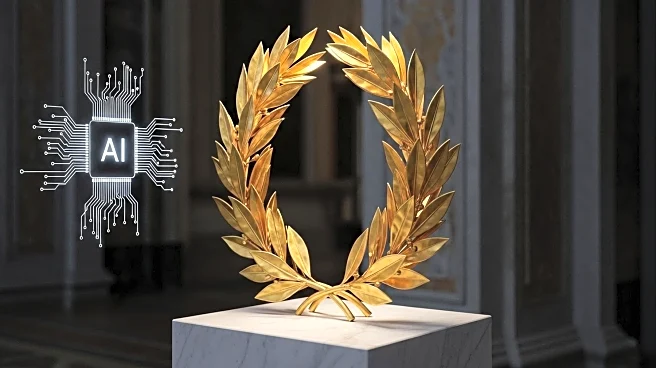What's Happening?
Pope Leo XIV has been named one of Time magazine's 'Most Influential People in Artificial Intelligence' for 2025. The recognition comes as the Vatican, under his leadership, has been actively engaging with the ethical implications of AI technology. Pope Leo XIV, who chose his papal name partly to address AI-related ethical issues, has emphasized AI's potential benefits in healthcare and scientific discovery while cautioning against its misuse. The Vatican hosted a conference on AI, ethics, and corporate governance, where Pope Leo XIV delivered a keynote speech highlighting AI's role as a force for good but also warning of its possible negative repercussions.
Why It's Important?
The inclusion of Pope Leo XIV in Time's list underscores the growing importance of ethical considerations in the development and deployment of AI technologies. As AI continues to advance, its impact on human dignity, justice, and labor becomes increasingly significant. The Vatican's involvement in these discussions reflects a broader societal need to balance technological progress with ethical responsibility. This recognition may influence other global leaders and institutions to prioritize ethical frameworks in AI development, potentially shaping public policy and corporate governance in the tech industry.
What's Next?
The Vatican's ongoing engagement with AI ethics suggests further initiatives and discussions may be forthcoming. Pope Leo XIV's influence could lead to more collaborations between religious institutions and tech companies to address ethical challenges. Additionally, the Vatican may continue to host conferences and dialogues, fostering a global conversation on AI's role in society. Stakeholders in the tech industry, including policymakers and corporate leaders, may respond by integrating ethical considerations into their AI strategies, potentially leading to new regulations or guidelines.
Beyond the Headlines
Pope Leo XIV's recognition highlights the intersection of technology and religion, raising questions about the role of religious institutions in technological discourse. This development may encourage other religious leaders to engage with tech ethics, potentially influencing cultural attitudes towards AI. The Vatican's stance could also impact educational approaches, prompting institutions to incorporate ethical discussions into AI-related curricula, thereby shaping future generations' understanding of technology's societal impact.









